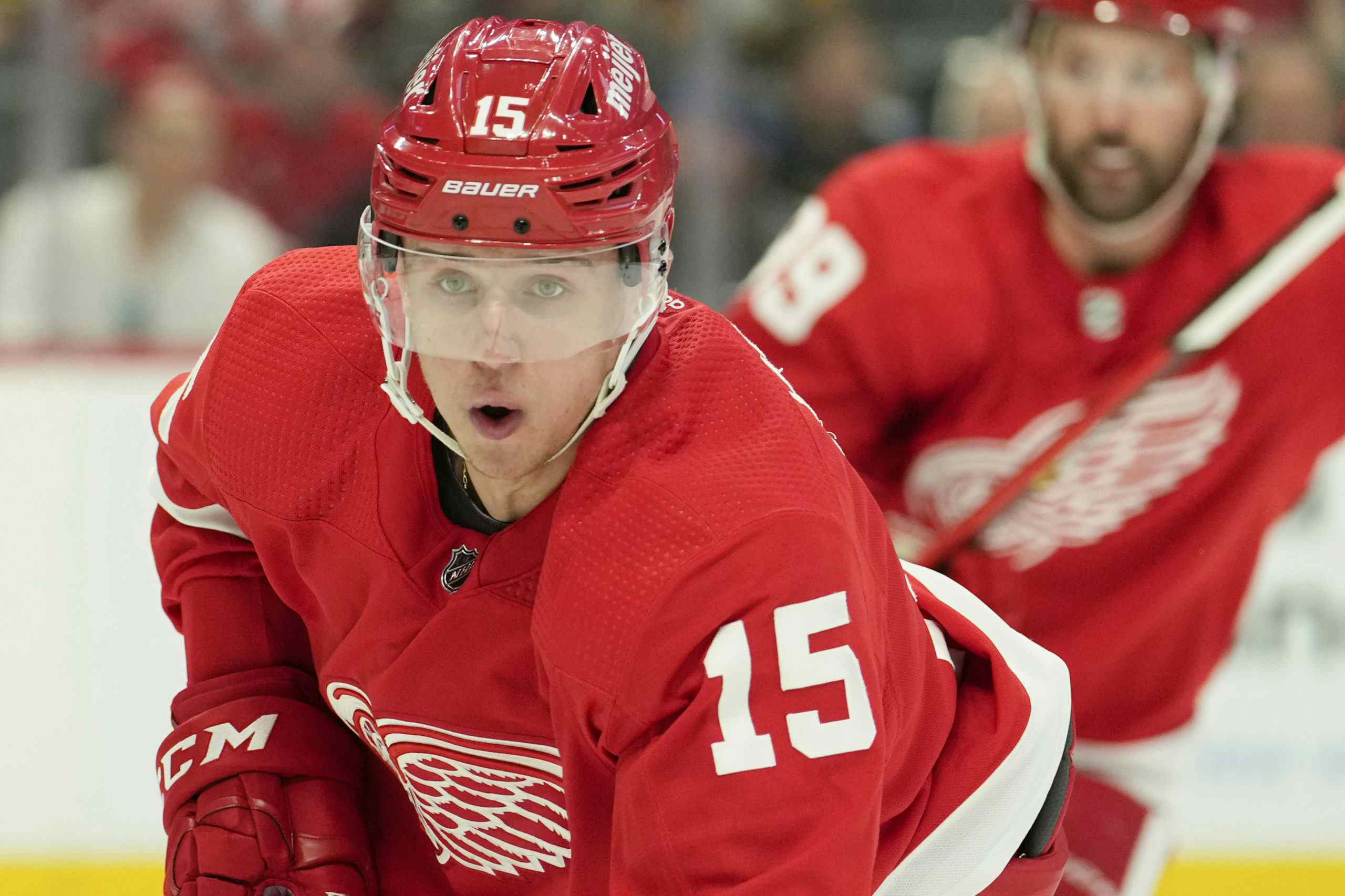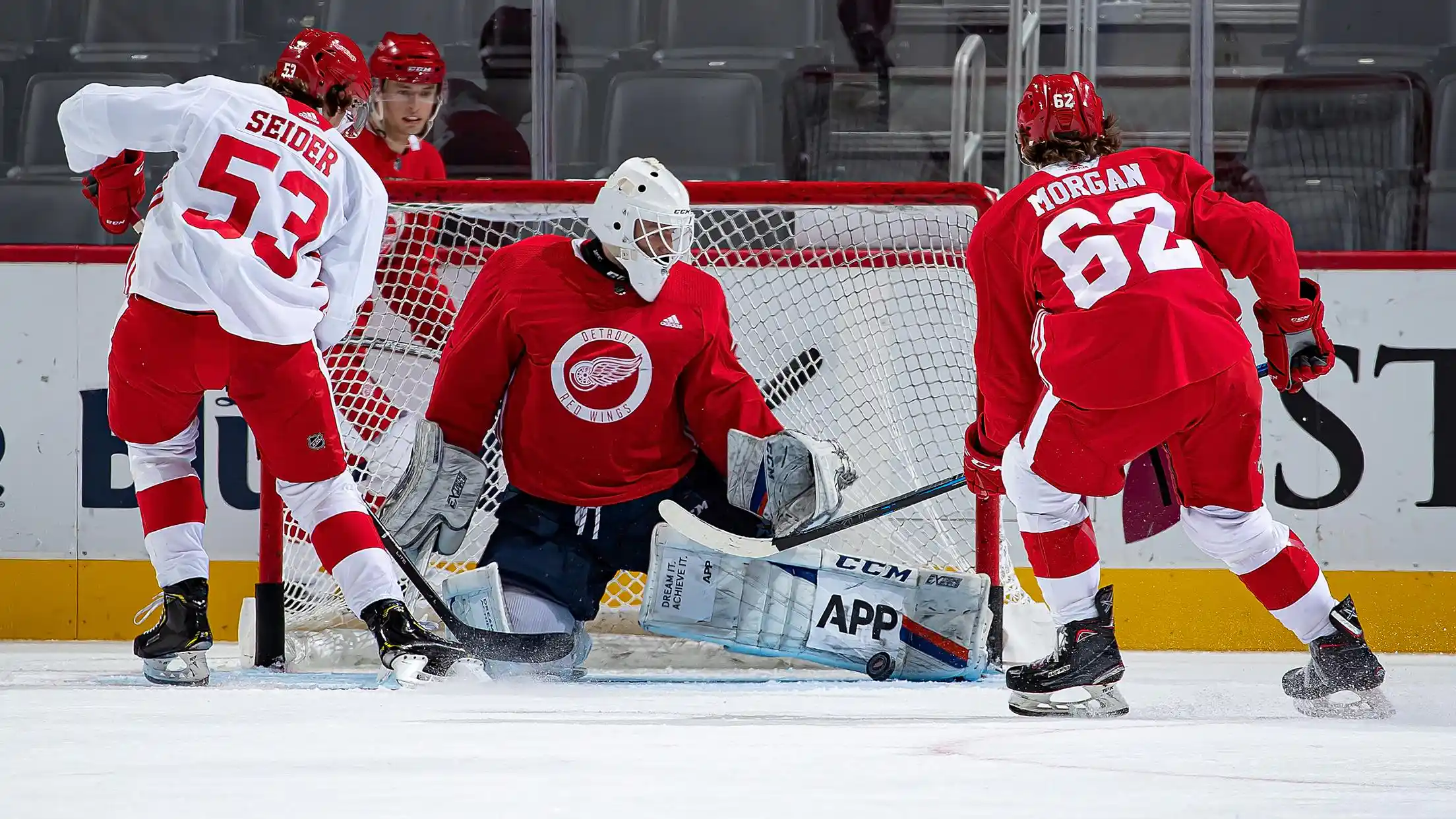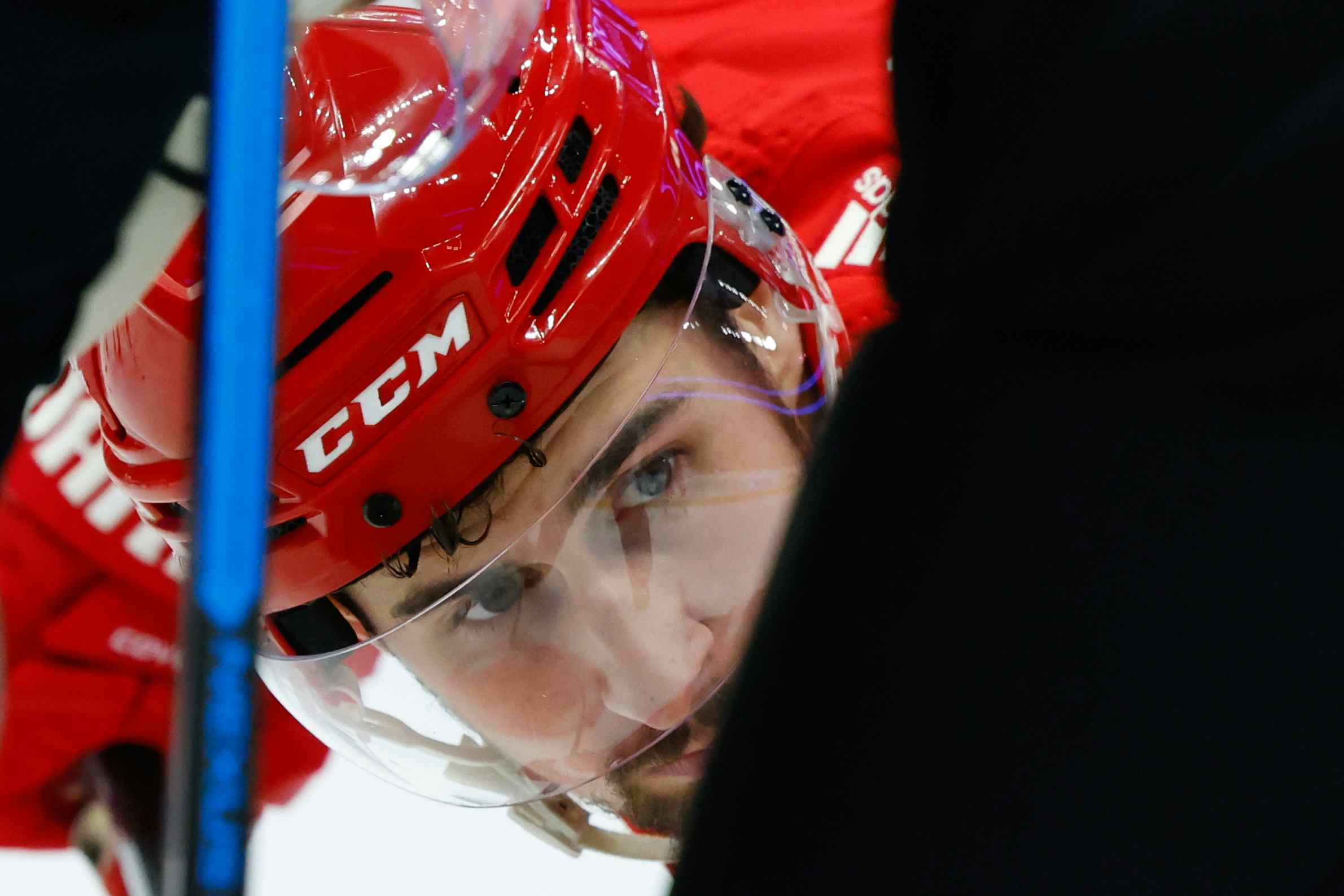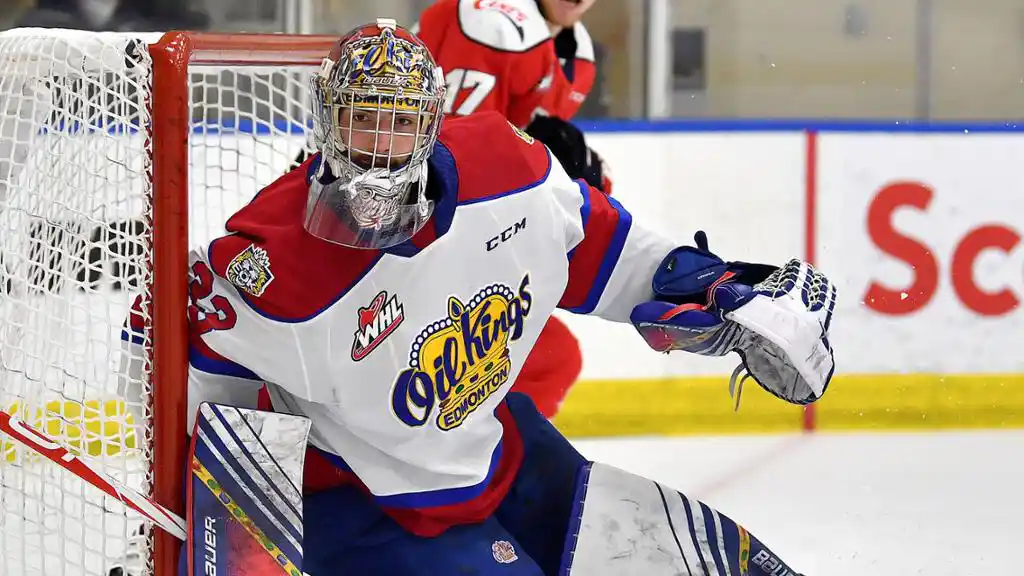The Red Wings Should Disable Kenny Holland’s Phone Service For The Month of February
The Detroit Red Wings have been a decidedly successful franchise under Ken Holland’s watch. Since being appointed as the team’s General Manager before the ‘97-’98 season, their overall resume from start to finish has been unparalleled any which way you slice it. They’ve hoisted the Stanley Cup as the last team left standing in the playoffs on three occasions while adding an additional four Presidents’ Trophies as the league’s best regular season team on top of that. As such, it’s not surprising that no franchise has won more regular season games or playoff games than they have in that time.
While a certain confluence of various contributions is necessary in enabling that kind of sustained success, Holland’s individual role in assembling all of those teams shouldn’t be understated. Yet for all of those skills he possesses as a team-builder, one particularly glaring weakness has started to become a recurring theme for his regime in recent years: his propensity for making poor in-season trades.
With the season for trading on the horizon, ultimately culminating in February 29th’s deadline day festivities, the Red Wings should, at least, consider preemptively disabling his phone service for the duration of the month. After all, it’s hard to get taken in a trade if there’s no one on the other end of the call in the first place.
Where Holland’s gotten himself into trouble specifically over the years has been on the occasions when he’s seen fit to pony up a collection of assets for a rental player that likely he figured would help push his team over the hump. Making last second moves out of desperation generally isn’t advisable for anyone, but in his case it’s been especially ghastly over the years:





Every decision-maker, regardless of highly regarded they are around the hockey world, is prone to having their own distinct blind spot. None of them are infallible, despite the appeal to authority that still persists amongst fans. What distinguishes the good ones from the clueless ones is the ability to limit both the exposure to those mistakes and the relative accompanying opportunity cost that follows as a result.
In Kenny Holland’s case, his resume shows that he’s awfully partial to veterans that are on their last legs. It’s somewhat ironic given Detroit’s reputation as an organization known for its ability to routinely win on draft day, uncovering gem after gem over the years. It may also, however, provide some insight into their organizational philosophy of generally keeping those prospects they draft – Dylan Larkin aside – in the minors until they’re way past ripe, opting to fill main roster spots with David Legwand and Erik Cole types in the meantime instead.
While it initially seems a little sacrilegious given the esteem in which he’s held, I’ve become growingly skeptical of Holland’s reserved spot amongst the league’s best General Managers. Going through his list of transactions involving player personnel, both via free agency and trade, there’s many more swings than misses. A lot of it can be traced back to this idea of loyalty and establishing a “culture” which he constantly preaches. While it’s an admirable one in theory, it’s also a style that comes with a cost in practice. Especially when considering the cutthroat nature of the salary cap world, in which cold, calculated, dispassionate decisions need to be made regularly.
That’s not to take away from his accomplishments as an executive, as much as it is to wonder whether he’s been miscast in this particular role. While his player personnel track record leaves a lot to be desired, the list of various levels of staff he’s given a chance to carve places out in the league for themselves is an impressive one. Steve Yzerman, Jim Nill, Mike Babcock, Bill Peters. Where Holland has excelled has been in more of a Vice President role, overseeing who’s entrusted with what in making the entire operation run smoothly. Many great hockey minds have come through Detroit during his team at the top, and it’s pretty clear that he has a good eye for talent in that regard. Along those similar lines, he’s long been a visionary leader by staying ahead of the curve with things like embracing the importance of puck possession in a changing game and being one of the most vocal individuals fighting against the shootout.
Keeping in mind how important this next month or so of hockey will be, the Red Wings find themselves in an interesting spot. They have a reasonably competitive team this season, thanks to a goalie that’s playing his position as well as anyone, and a skater group that’s been a 53% possession team since Pavel Datsyuk made his return from injury in mid-November. While they’re currently in a position to make the playoffs for a remarkable 25th straight time, it’s still hardly a given. Beyond the Washington Capitals the East is one big jumbled mess, with less than 10 points separating 2nd and 12th in the conference.
Based on his recent history, it seems fair to posit that as Ken Holland looks around at the landscape right now, he’d surely like to put together a deal in which he acquires a player that can be immediately slotted into the lineup to help out in the short-term. Especially on the blueline, where Niklas Kronwall’s injury has left a gaping hole that doesn’t look like it can be realistically be filled internally.
The problem for the Red Wings is that Holland himself hasn’t exactly provided us with any tangible reason to believe that he’s the one that should be pulling the strings when it comes to a move of that nature. They’ve been able to take the hits to their pipeline up because of the impressive level to which its been stocked. While giving up on young, cheap contributors like Janmark and Jarnkrok in the name of hasty deadline rentals hasn’t necessarily come back to haunt them yet, it eventually will if they insist on making this their new annual tradition. Sometimes the best moves are the ones you don’t make.

Recent articles from Dimitri Filipovic





